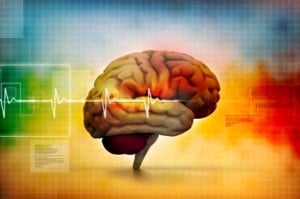8 Steps for Recovering from a Brain Injury

Brain injury can be a traumatic experience. There are several after effects that come along with brain injury as well. However, if you take precaution in caring for yourself the right way, you can avoid further negative impacts. Read on for 8 steps for recovering from a brain injury.
Familiarize Yourself with the Facts of your Injury
Traumatic brain injury, or TBI, occurs as a result of a forcible blow to the head. It can be caused by falls, crashes, violence, abuse, sports, or during military service. If the injury sustained is mild then there is usually no permanent damage or symptoms. This is not the case in moderate and severe TBI.
How Severe is your TBI?
There are several indicators that are used to judge the severity of the trauma to the brain and loss of consciousness is one. Conduct tests on the brain such as a CT scan or an MRI to confirm the diagnosis.
The Length of Time Necessary for Recovery
A patient can recover consciousness and regain cognitive functions and perform simple tasks right away depending on the severity of the trauma or injury. Recovering from traumatic brain injury can be a long, expensive, and painful process depending on the severity of the injury sustained.
When Does Recovery Begin?
If the individual remains unconscious for a period exceeding an hour, then the injury is deemed to be severe and the damage sustained can lead to permanent irreparable damage and lifelong symptoms. In these cases, hospitalization followed by intense therapy, both physical and mental, will be necessary to aid in the rehabilitation and recovery process.
How Soon Will the Symptoms Occur?
Most patients who experience severe traumatic brain injury will exhibit symptoms right away. For those with mild TBI the symptoms usually begin anywhere from a week to a month.
Common Symptoms
These include mood swings which can cause changes in a patient’s personality and increase their irritability and bring about changes in their general level of aggressiveness. This can sometimes cause permanent irreparable harm to families and relationships. Being forewarned is being forearmed and so it is important to take the steps necessary to prevent this from happening.
Loss of memory is another stage or symptom associated with TBI. This can make it difficult to function in some environments such as work or at home if you live alone. It all depends on the level of forgetfulness. It can be as simple as forgetting names, numbers, places, or misplacing items. It can also be forgetting entire events or conversations and even people and places or directions to your home or office. This can be very confusing and frustrating. Writing things down on a piece of paper and can sometimes help the process.
Get Plenty of Rest
Make sure to get lots of rest to prevent tiredness and fatigue, which can trigger and exasperate mood swings, irritability, and memory loss. However, as with most of these types of symptoms depending on the severity of the TBI, the best medicine is rest and time which will allow the brain to heal and recover.
Get Help
You may need professional help to fully recover. Do not hesitate to seek the help you need, it may be therapeutic, medical, or legal.
One resource for help is the team at Priority Legal, which is always willing to provide legal information and assistance.



